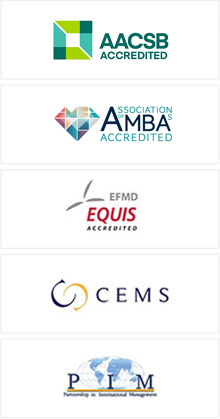Recipes for success in public sector service procurement
That was the topic at November's Knowledge Sharing Breakfast event.

Is it realistic to assume that digitalisation, the social welfare and health care reform, and a few other projects will provide Finland with hundreds of billions of euros in savings?
Under the leadership of Assistant Professor Katri Kauppi, the Logistics discipline organised a Knowledge Sharing Breakfast on 10 November 2015 at the School of Business. The event content this time was directed at decision-makers in the public sector who work with public procurement, those working with changes in the Act on Public Contract, and others with an interest in the theme.
Logistics researchers Suvituulia Taponen and Markku Tinnilä from the School of Business presented new research results on public sector service procurements. Discussion was brisk as the participants considered whether, for example, outsourcing is a solution to the difficult problems in the public sector and the significance of the market in terms of overall efficiency in transportation service procurement.
The event also included a rather active discussion panel in which procurement professionals Vice President Ville Halonen from Finnair, Professor Katariina Kemppainen from the School of Business, and Chief Category Officer Susanna Närvänen from Hansel talked about concrete measures to improve productivity.
Ville Halonen emphasised the importance of selecting the right service indicators when outsourcing by stating that quantity is not better than quality. Susanna Närvänen stressed the key role that increasing procurement competence plays in the central government sector, where resources are still insufficient and people handle procurement on top of other duties. Katariina Kemppainen addressed the importance of the management system and applying lean principles to service development. 'Services should be modelled prior to starting negotiations in order to understand the whole picture,' said Kemppainen.
'It's unlikely that we'll find a single solution, but we can state that this is a matter of overall service management rather than just service procurement,' said Assistant Professor Katri Kauppi as she summarised the results of the event.


